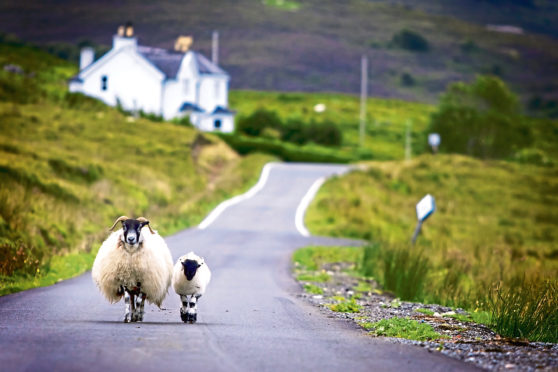The Covid-19 pandemic is absorbing all of us but we must not take our eye off the Brexit ball.
So much resource is being taken up with fighting the pandemic that it is unlikely a comprehensive trade deal between UK and EU can be concluded before the end of 2020, and impossible for UK governments to develop robust contingency plans for an inevitable “no-deal” crash out of the European Union.
It is, therefore, essential the UK Government agrees a two-year extension to the transition period with the EU. Crofters will then be able to plan for 2021 and 2022 whereas, at the moment, we have no idea what rules will be in place for next year. This is too important to be rushed to meet a self-imposed and arbitrary deadline.
Exports to the EU underpin the market for many crofters so it is vital these continue tariff-free for both beef and lamb.
We currently have exemplary high animal welfare, traceability and environmental standards. This is not only good for consumer, animal and planet, but is our main selling point. We should not reduce these standards or allow imports that do not conform to our standards.
The implications of these conditions are that we should continue to shadow EU standards if they change in the future. The UK should agree a trade deal with the EU before negotiating with the USA or other countries as the latter is likely to put pressure on our standards.
Similarly, we would not want to see tariffs reduced for imports of lamb or beef which would undercut our high-quality local produce.
A number of areas crucial to the Scottish rural economy rely on temporary and permanent immigration and this has to be able to continue after the transition period.
Continuing support payments at a UK level have been signalled for the life of this parliament – this is vital and Scotland must get its fair share. There will be need for a UK framework across the four constituent countries and this must be agreed between all four countries, not imposed by Westminster.
Scotland can then develop its own support systems to fit its own needs within the agreed framework, which will include a replacement for the Less Favoured Area Support Scheme (LFASS) based on Areas of Natural Constraint (ANC) principles. This, you will recall, is the European scheme developed to target support to those areas facing natural constraints.
We had the option to join but the Scottish Government decided to opt out. This was partly under pressure from the farmers who benefit unjustly from LFASS and partly due to reluctance to disturb the shaky IT system – support payments are still being “lent” as advances as the IT system cannot cope. The penalty for not joining ANC is that LFASS will be reduced to 40% next year.
- Patrick Krause is chief executive of the Scottish Crofting Federation.
